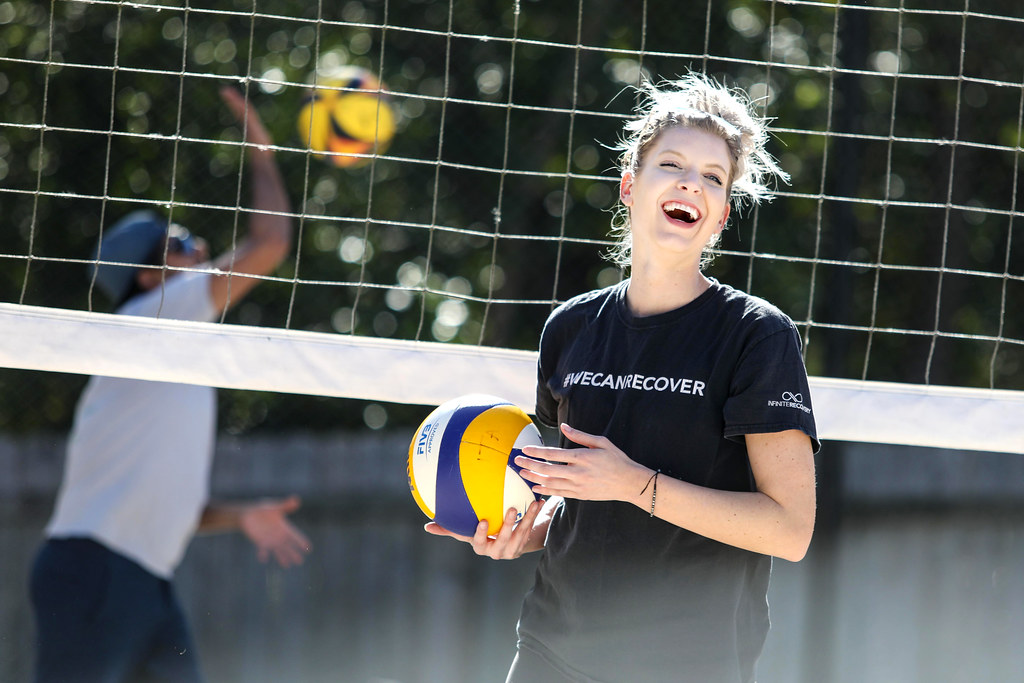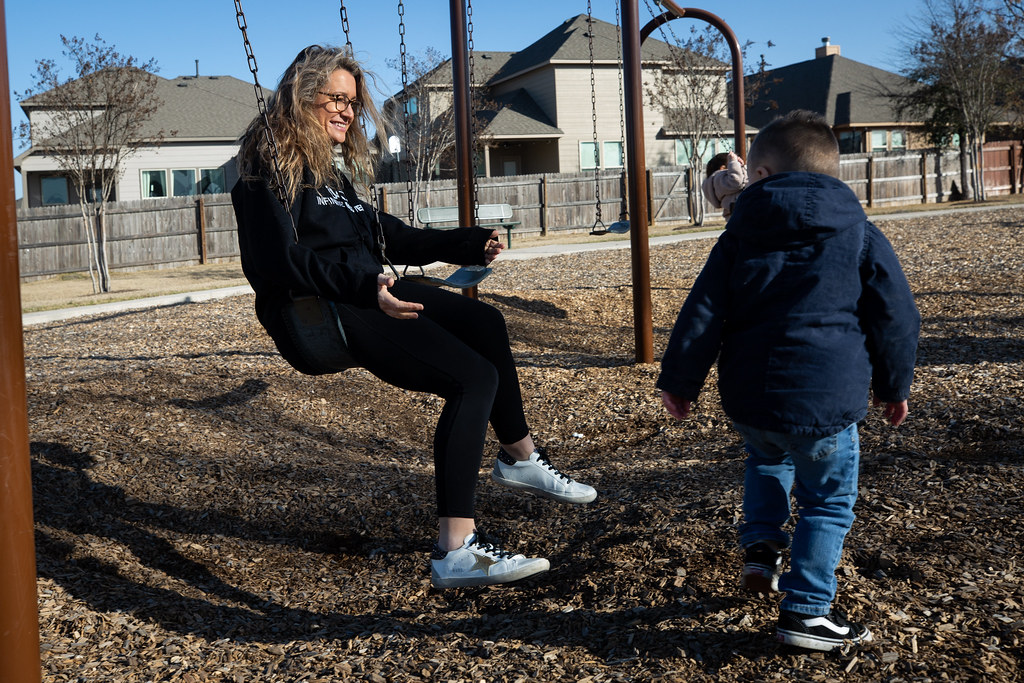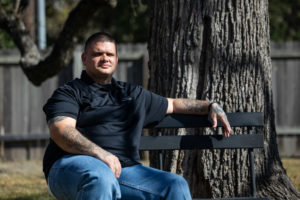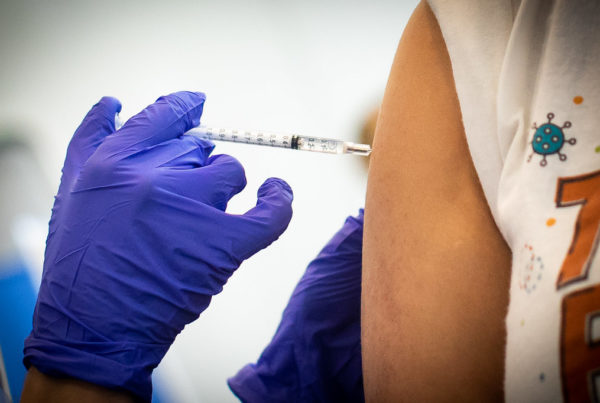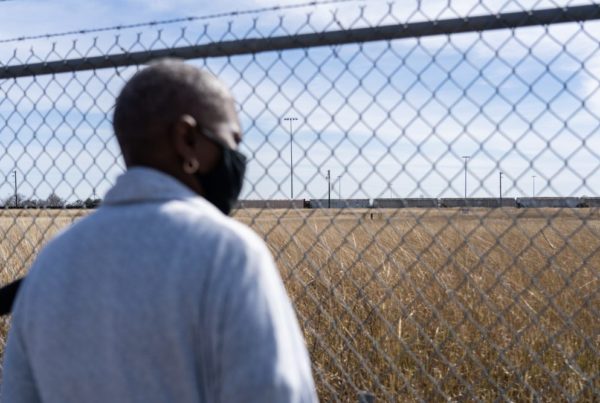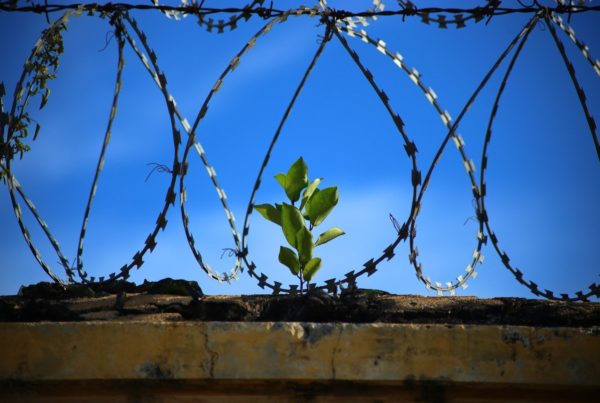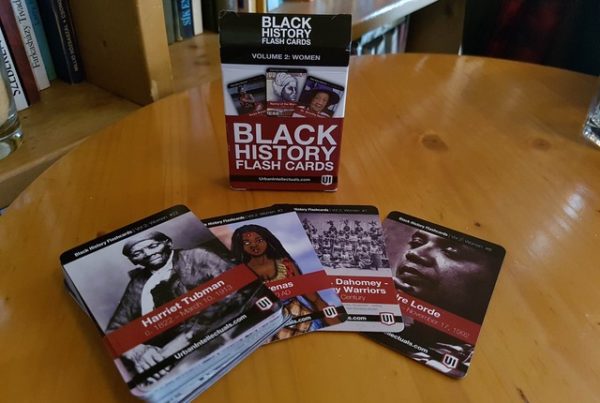Isolation has kept many of us safer from COVID-19. But it is hurting people recovering from a substance use disorder.
That’s because people already working on their recovery are in somewhat of a fragile state.
Since the COVID-19 pandemic started, Dr. Sidharth Wakhlu, an addiction psychiatrist with UT Southwestern Medical Center says overdose deaths are accelerating “in at least 37 states.” Texas is among them. And it is heartbreaking, he says, because “people with addictions are good people with a bad disease.”
So, how are some Texans able to maintain their recovery without the possibility of in-person meetings due to COVID-19?
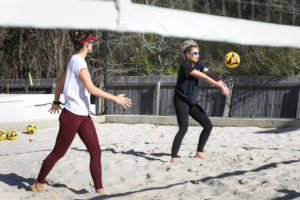
Glenn, right, playing volleyball with friend Angela White.
Chrissy Glenn, a spokeswoman for Infinite Recovery, a treatment facility in Central Texas, is also in recovery. She says her go-to option during the pandemic has been to get involved with physically demanding, outdoor, socially distanced sports such as volleyball. Playing volleyball, she says, helps the body release dopamine, the feel-good hormone and neurotransmitter that her brain craves and helps keep her mind off of wanting to self-medicate.


